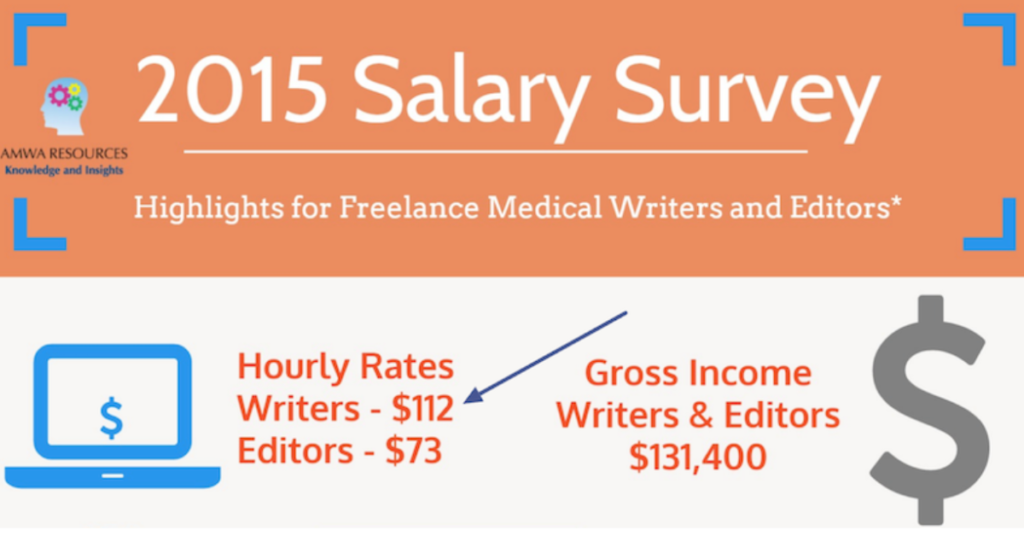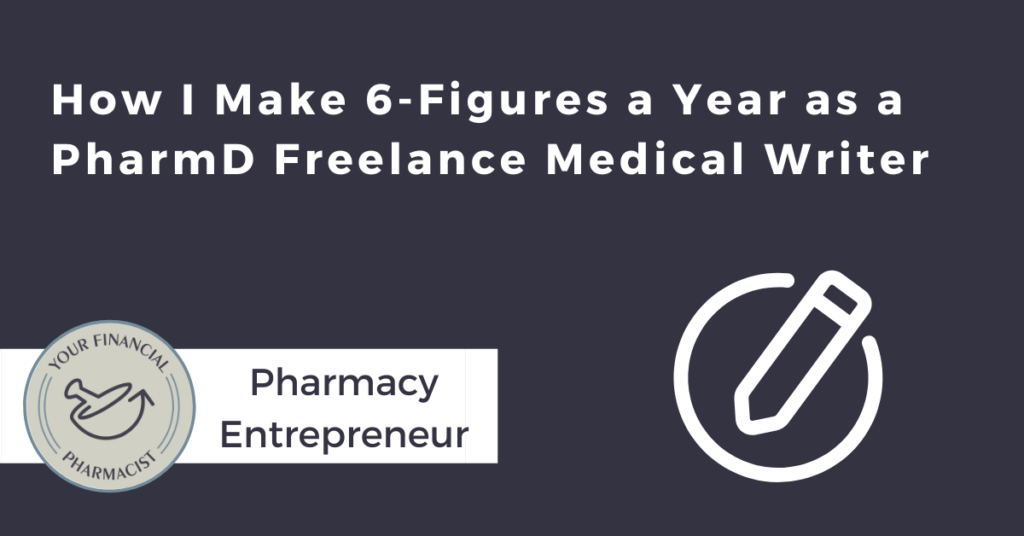By Austin Ulrich, PharmD, BCACP
Austin Ulrich is a blogger, entrepreneur, and freelance medical writer. He spent 8 years in the pharmacy profession prior to going full-time with his freelance medical writing business. On his blog austinulrich.com, he writes about creating freedom and time by earning and keeping more income. He enjoys running, music, and traveling with his wife and 4 kids.
If you had told me 5 years ago that I’d be running my own business as a full-time freelance medical writer, I never would have believed you. I was busy finishing up pharmacy school and focusing on what would come next: 2 years of residency and a lifelong career as an ambulatory care pharmacist.
Maybe you can relate – pharmacists often change career paths, and these days, many pharmacists are looking for nontraditional jobs. Even though I was looking at many possible career directions when I was a pharmacy student, I never came across medical writing. It wasn’t until halfway through my first year of residency that I discovered that medical writing existed and learned what it was.
In any case, through a series of life events and experiences, I started my freelance medical writing business, Ulrich Medical Writing, LLC on the side in 2019 and grew it to a full-time gig, allowing me to quit my ambulatory care pharmacist job in May 2022. And last year (2022), my total income nearly doubled what I would have made working only as a full-time pharmacist.
I strongly believe that freelance medical writing is one of the best ways for pharmacists to make extra money (either on the side or full-time) quickly. And it can be a very lucrative field if you’re a quick learner and efficient and if you produce good quality work.
My Path to Freelance Medical Writing
The turning point in my career happened during my first-year hospital pharmacy residency – I wasn’t accepted into an ambulatory care second-year residency program I had planned my whole career around. I had spent months focusing all my efforts on getting into that program, and it didn’t work out. After that disappointment, I resolved that I was going to future-proof my income so I wouldn’t have to rely on decisions by a single employer or manager to advance my career.
In my search for earning extra income, I tried lots of things – online transcription services, online tutoring, even teaching piano lessons. It was part of the learning process, but none of those pursuits were viable enough to make a decent amount of money on the side.
After a few months of searching, I discovered medical writing as a path for pharmacists that would use lots of the skills I already had (scientific research, writing documents, creating slide decks). In fact, I had just finished up a few residency projects that were quite similar to medical writing projects. I had the thought, “I’m doing this basically for free … but people are getting paid good money to do this!” At the time, the average hourly rate for freelance medical writers according to the American Medical Writers Association (AMWA) was over $100 per hour.

I launched my freelance medical writing business the same day I started my second year of pharmacy residency (still ambulatory care – but a different program). I had joined AMWA and learned more about the medical writing field, and I had created a basic website for showcasing my work.
I worked on marketing my services and getting some clients, and within a year I had 2 consistent clients and had generated about $20,000 from medical writing. It wasn’t enough to change my career path, but it was definitely “proof of concept”.
I started working full-time as an ambulatory care pharmacist in 2020, and continued medical writing on the side. Over the next 2 years, I got more clients and more freelance work. I focused on delivering high-quality content and being highly reliable. Doing great work was key to keep work coming in from past clients and build strong partnerships. Having steady clients is important for consistency in freelancing, and building up my client base with companies who offer regular, good-paying projects has been the most important factor in growing my business.
Some weeks I’d have to put in 60+ hours between my job and my side gig to get everything done. Eventually it came to the point where I had to choose between the full-time ambulatory care pharmacist job and the freelance medical writing side gig. It wasn’t a choice I treated lightly, but it was an easy choice. On writing projects, I was often making double my pharmacist hourly rate, and I loved the idea of having complete control over my hours and schedule. And the work had been consistent. But it would be a departure from my “planned career path” of working as a pharmacist. I chose freelance medical writing.
I eased into it – first, I went part time at my ambulatory care job. Then, after about 6 months of that, I was getting so much freelance medical writing business, and there was such a solid history of consistent income, that I was able to quit my job completely and focus full time on medical writing.
Today, I freelance “full-time” (25-30 hours a week on average), spend lots of time with my wife and 4 kids, work on other side projects, and make a good income. Although I still do lots of work each week, my schedule is completely flexible, and I have more freedom than ever before.
What is Medical Writing?
Medical writing is the process of developing medical or scientific materials to communicate information to the general public, patients, researchers, and healthcare professionals. It’s a fairly broad field, and medical writers can work in a variety of different areas such as continuing education, publications, regulatory writing, and digital health.
Anytime you read medical information online, or attend a course to get your required education, there’s a good chance at least some of the content was created by a medical writer.
Medical writing also includes creating materials like scientific and medical journal articles that are published in peer-reviewed journals, blog posts or online content for health-focused websites, grants and proposals for education companies, and regulatory documents for pharmaceutical companies.
What is a Freelance Medical Writer?
A freelance medical writer is someone who offers medical writing services to companies on a contract basis, not as an employee. Many companies, such as medical communications agencies, continuing education companies, healthcare organizations, and pharmaceutical companies have on-staff writers that take care of most of their content.
But when someone has a project that exceeds the bandwidth of their staff writers, that’s where freelancers come in. Many companies also work with freelance medical writers regularly because it works well with their content process.
Conclusion
Ultimately, medical writing is a great profession for pharmacists, and it’s only going to grow in the coming years. People I talk to tend to be pretty interested after they hear that I work from home with a completely flexible schedule and good income. But, writing isn’t for everyone. In fact, many pharmacists I talk to say, “That sounds horrible!” or “I couldn’t do that” when they find out I spend most of the day sitting at a computer writing.
Pharmacy is a great background to have for getting into medical writing. Many pharmacists have medical writing skills from pharmacy school and/or residency (and that work was for free as a student or resident!). There’s lots of medical writing work out there, and pharmacists are well-suited to be successful as medical writers. So if you know your stuff when it comes to grammar, sentence structure, and writing about science and medicine, I’d encourage you to check out medical writing!
Interested in hearing how other pharmacists started medical writing businesses? Check out these YFP Podcast episodes:
YFP 126: Going Beyond Six Figures Through Medical Writing with Brittany Hoffman-Eubanks, PharmD
YFP 256: Building a Medical Writing Business with Megan Freeland, PharmD









